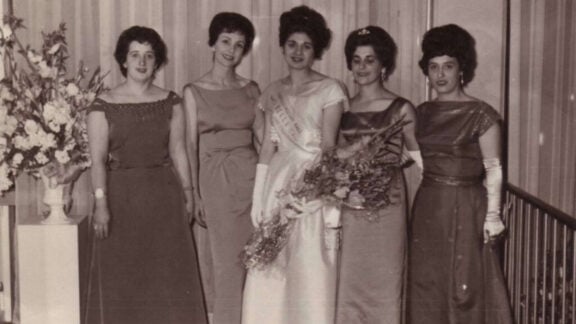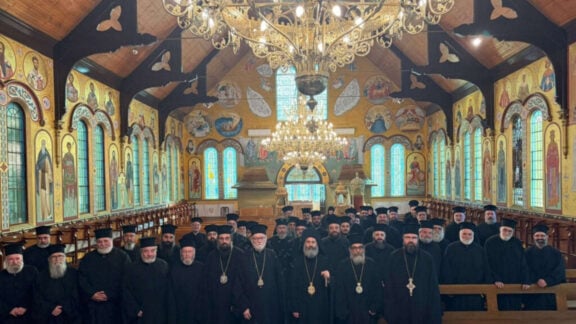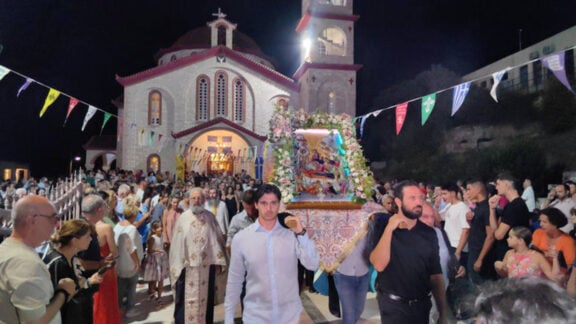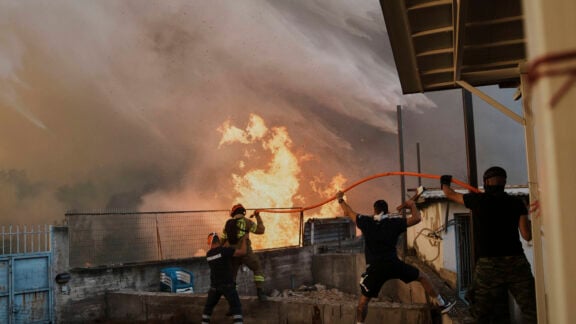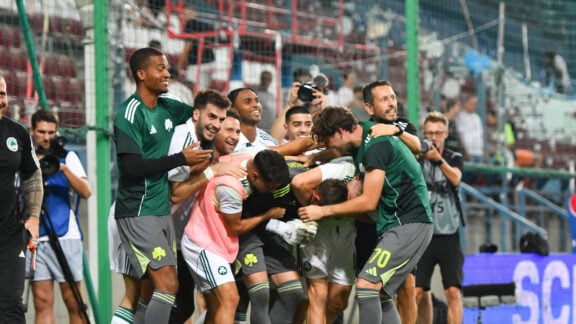When the Cyprus war imploded in the summer of 1974, unevenly matched and differently motivated forces conspired to divide the island. As Christopher Hitchens’s ‘collusion theory’ suggests, these forces had one thing in common: their fear or dislike of an independent Cyprus. As we, once again, find ourselves within ‘reach’ of a possible ‘solution’, the ghost of 1974 ascends from the viscera of history to agitate our conscience, exasperate our insecurities, and confound our judgement.
There is no doubt that 1974 had a profound effect on Cyprus with all subsequent Cypriot political behaviour emanating from this crisis. A compilation of guilt, shame, anger, incest, frustration, conjuring a sense of fatalism borne out of defeatism, despair and depression, 1974 is embedded deep in the Greek Cypriot psyche. Best encapsulated by Greek Cypriot poet Kostas Montis in one of his allegoric ‘moments’: ‘Now how can we die…with this worry behind us? Obviously we have to postpone!’; this emotional impasse constitutes a watershed not only for Greek Cypriots but for Cypriots overall.
Despite the fact that the Cyprus question has engaged international diplomacy for over half a century, it is the events of 1974 that dramatically changed the nature of the problem and propelled it in an entirely new direction. In the ensuing forty years, all subsequent negotiations have concentrated (mainly) on the consequences of 1974 as it constitutes the latest manifestation of the Cyprus problem.
To fully appreciate 1974’s impact on the Greek Cypriot psyche, we need only glance thirty years ahead to those emotionally charged weeks before the 2004 referendum on the Annan Plan. Soliciting support for the ‘Yes’ case, US Secretary of State Colin Powell remarked during a television interview that “2004 (is) not 1974”. Echoing Basil Fawlty’s ‘don’t mention the war’, Powell’s unwillingly uttering unleashed an uneasiness and an uncertainty harboured by Greek Cypriots for decades.
The psychology of 1974 is exacerbated by parallels drawn with the fall of Constantinople and the Asia Minor Catastrophe. 1974 perpetuates the image of the ‘unspeakable’ Turk as Orthodox Hellenism’s eternal enemy, out to expel them from their ancestral homeland in a melancholic rendition of Greek determinism. In this context, 1974 represents the apex of national treachery, which reverberates throughout Greek Cypriot political culture and haunts their every decision during the Cyprus Talks. Subsequently, 1974 also had a profound effect on Greek Cypriot nationalism as it truly became the ‘tombstone’ for énosis. Paradoxically, to the extent that instability, conflict, and crisis are features of change, then 1974 constitutes a turning point in Greece’s Europeanisation/ westernization trajectory. In search for redemption, 1974 also re-defined, in a profound and deep manner, relations between Greece, as the national metropolis, and (Greek) Cyprus – grandiloquently enunciated in the Karamanlisque policy-slogan ‘Cyprus decides and Greece follows’!
Conversely, 1974 is heralded as a ‘peace operation’ and celebrated by Turkish Cypriots as an antidote to Greek Cypriot hegemony. According to preeminent Turkish Cypriot-American conflict psychologist Vamık Volkan, 1974 serves a therapeutic—almost cathartic—function for the Turkish Cypriots. Its ‘ego-syntonic’ resonance, and its aggressive quality, provide a liberating, cleansing sensation for a minority suffering from low esteem and a victim mentality.
But to move forward, Cypriots need to attend, effectively and truthfully, to the emotive scars that stem from 1974. For a variety and different reasons, both sides have been unable, or unwilling, to empathise with the other’s painful rendition of 1974. Celebrational and commemorative parades and displays of military proudness surrounding 1974 not only excrete of adolescent revanchism, they also re-invent the politics of hate, separateness and division – something that the peacemakers seem to downgrade, deflect and discount.
* Dr Michális S. Michael is senior research fellow at La Trobe University, Director of the Centre for Dialogue and author of Resolving the Cyprus Conflict: Renegotiating History.



